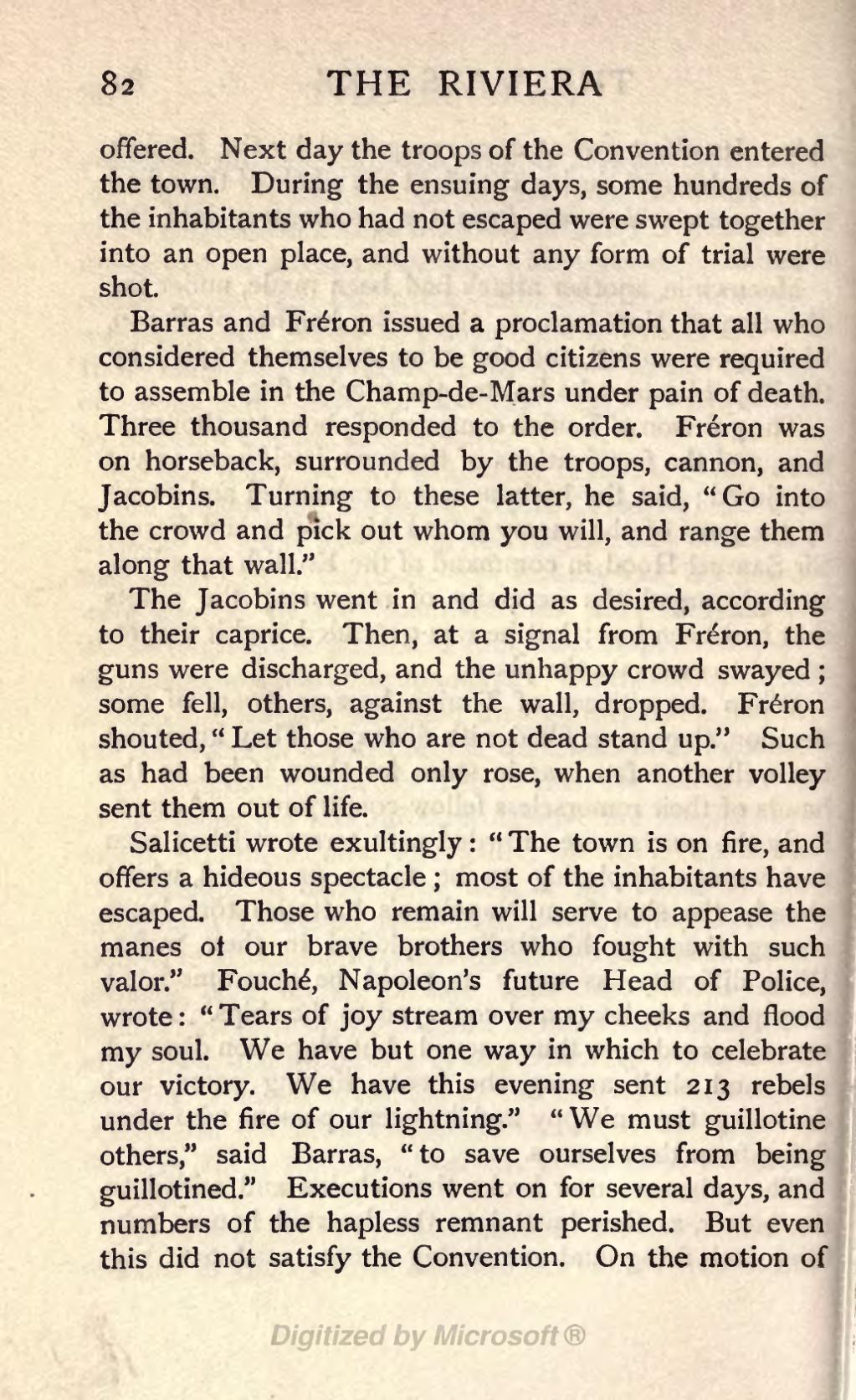offered. Next day the troops of the Convention entered the town. During the ensuing days, some hundreds of the inhabitants who had not escaped were swept together into an open place, and without any form of trial were shot.
Barras and Fréron issued a proclamation that all who considered themselves to be good citizens were required to assemble in the Champ-de-Mars under pain of death. Three thousand responded to the order. Fréron was on horseback, surrounded by the troops, cannon, and Jacobins. Turning to these latter, he said, "Go into the crowd and pick out whom you will, and range them along that wall."
The Jacobins went in and did as desired, according to their caprice. Then, at a signal from Fréron, the guns were discharged, and the unhappy crowd swayed; some fell, others, against the wall, dropped. Fréron shouted, "Let those who are not dead stand up." Such as had been wounded only rose, when another volley sent them out of life.
Salicetti wrote exultingly: "The town is on fire, and offers a hideous spectacle; most of the inhabitants have escaped. Those who remain will serve to appease the manes of our brave brothers who fought with such valor." Fouché, Napoleon's future Head of Police, wrote: "Tears of joy stream over my cheeks and flood my soul. We have but one way in which to celebrate our victory. We have this evening sent 213 rebels under the fire of our lightning." "We must guillotine others," said Barras, "to save ourselves from being guillotined." Executions went on for several days, and numbers of the hapless remnant perished. But even this did not satisfy the Convention. On the motion of
